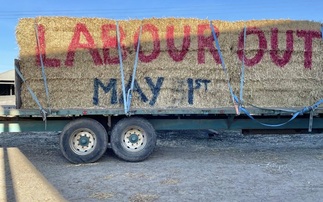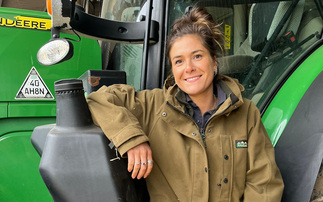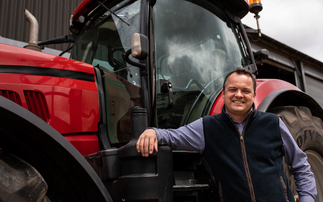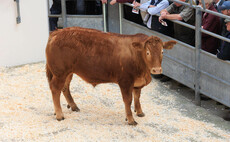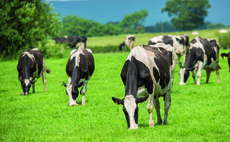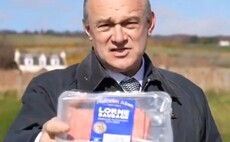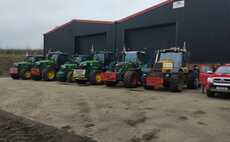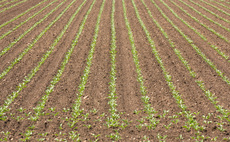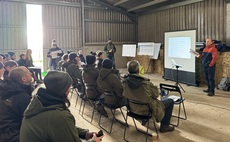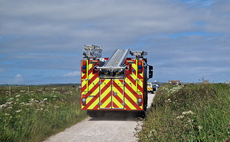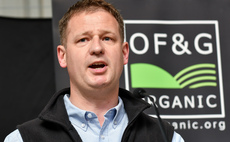
Sat beside a 32.4 hectare (80 acres) lake and 12.1ha (30 acres) of forest, it is easy to see why Greg Hart is desperate to preserve this beautiful piece of land for future generations.
Farming at Mangarara Farm in New Zealand's North Island, just an hour from Christchurch, Greg has given the farm a new lease of life after finding a passion for regenerative farming methods.
His parents and grandparents lived on a farm, but as teenager he sustained a back injury and was told he probably would not be able to work on a farm.
After finishing school with a degree in agriculture, he decided to see the world and took on various jobs including a farm consultancy and even ended up doing a rugby season in Yorkshire.
LISTEN NOW: Listen to Greg's podcast below
He returned to New Zealand and had a couple of office-based jobs, but when his parents moved the opportunity came up to buy some land next to them and with his wife, Rachel, who was a local from the Hawkes Bay area, they began their farming journey alongside his parents.
Across 607ha (1,500 acres) their land is a mix of flat land and steep rolling hills.
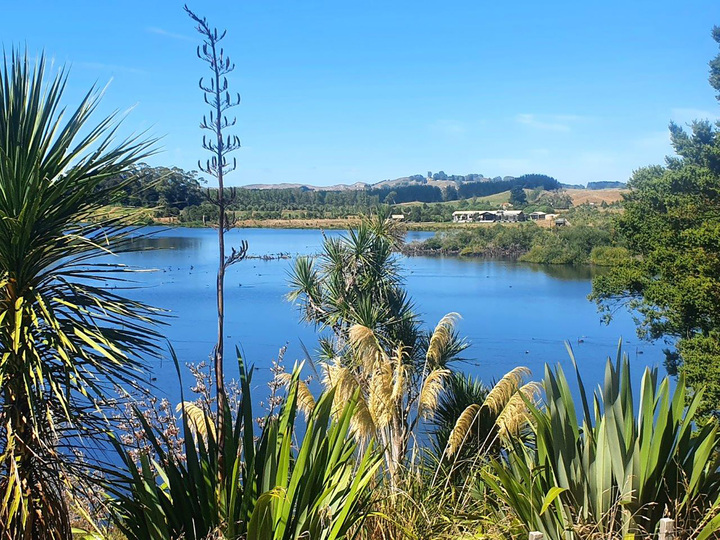
"We have an 80-acre lake outside our house; a lot of New Zealand has been cleared of native forest but have 30 acres of old forest along the farm," says Greg.
"It is quite rare in these parts and nice to have indigenous forest."
Farming beef and sheep, numbers have been cut back to around 750 cattle, most of which are Aberdeen Angus, and they have gone from running 3,000 breeding ewes to having around 30.
Regenerative farming
It is easier to manage now, he says, but the idea around destocking has come from the couple's belief in land management.
Greg says: "The whole philosophy is around holistic planned grazing.
"We also have a whole lot of diversifications – an eco-lodge and accommodation, a few chickens and pigs.
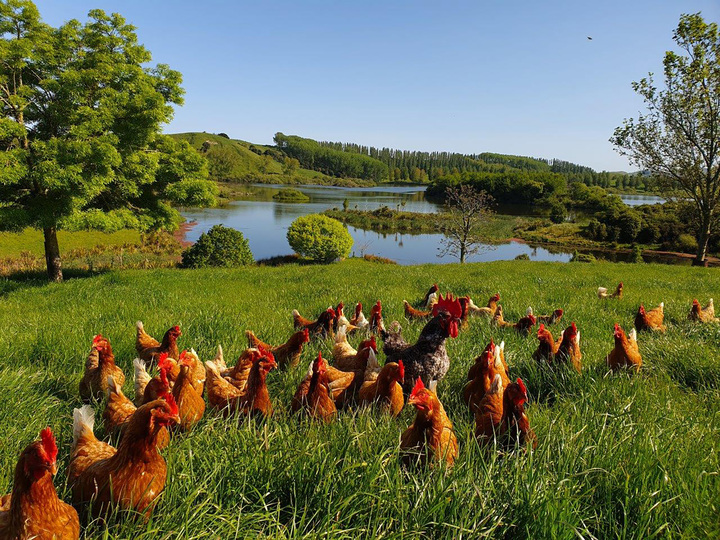
"It is good to have various income streams when you go through the ups and downs of farming."
They buy in heifers from a neighbour and their core business is supplying beef to butchers. They also take dairy heifers from another farm, grazing them at Mangarara, getting them in-calf and then sending them back.
READ NOW: Native breeds suit Lancashire farm
They buy in lambs to fatten and sell them back through market.
But Greg's ‘long' journey with regenerative practices began 20 years ago, initially inspired by fatherhood.
"When you have kids, you think a lot deeper about the next generation. What food are we giving to our children?" he says.
"I was also learning about sustainability issues.
Fertiliser
"New Zealand relies on phosphate fertiliser from Morocco – it is what sustained our industry but to me that is not sustainable.
"It sent us on a journey to find more sustainable ways to sustain production and a really big one for me was understanding the role energy plays in our life.
"It appears to me it [phosphate] is not going to be so readily available in the future, so how do we adapt when that time comes?
"And there is a biodiversity crisis, so how do we restore balance between agriculture and people?
"That biodiversity is essential for our survival and wellbeing."

Greg's thoughts turned to trees first, and in 2007 he managed to create a business opportunity for the farm.
Spurred on by an idea about air travel, he approached Air New Zealand about the potential of swapping air credits for a tree planting programme, and although it did not quite work out that way he was presented with an opportunity.
Trees
He says: "Farm budgets do not have spare cash for buying trees, but Air New Zealand said they were establishing an environment trust, so it was right place, right time.
"They were looking for a project and had a budget for three years, so we planted 85,000 native New Zealand trees.
"The other side of this is that our farm is now open to the public because we believe many problems are through that loss of connection; people no longer understand where their food comes from.
"We have a good relationship with Air New Zealand and have between 1,500 – 2,000 visitors to the farm, who are free to wander out to the trees and see the animals."
The livestock management has changed too, having moved to a system used by well-known Zimbabwean farmer Alan Savoury.
This holistic land management method, which is better for cattle, builds on the natural movement of herds of buffalo which in turn creates a thriving environment for soil.
Greg says: "Those big herds of buffalo in Africa create some of the deepest, richest soils in the world through trampling; constantly moving, tall pasture and using manure, and that is what we are trying to mirror with these bigger animals.
"As humans we are good at treating the symptom but not the cause, and holistic management looks at the cause of problem.
"We are also inspired by Joel Salatin (well-known American farmer who has built a successful farm-to-consumer business) and his thing is being open and transparent.
"The goal is to build a community around the farm; people who buy produce from us, know our farm and know us.
"Trust is our certification with our end user."
The main aim is to have a robust business, especially given that ‘sheep and beef farmers are going through a tough time in New Zealand'.
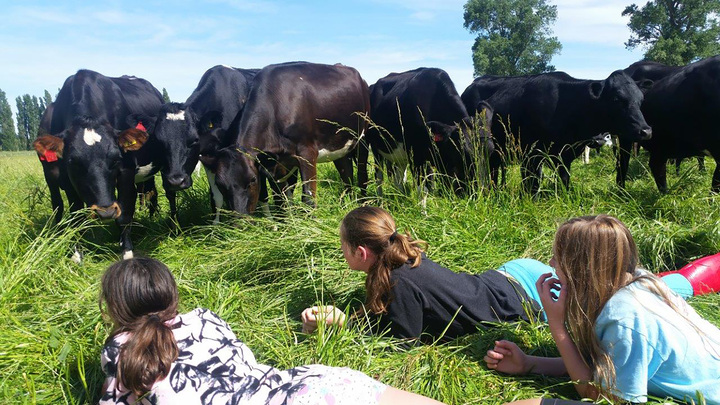
Greg is concerned that as times get tighter, environmental initiatives get bypassed because they need financial support as well as consumer support.
He also understands the weather woes we have faced here in the UK – last year was recorded as the wettest yet and they endured a huge cyclone.
"The extremes are becoming more extreme," he says.
"Two years of drought and then two years of extreme wet weather."
READ NOW: Global beef production under pressure
Farm labour
Another issue he recognises is labour. In the UK we are still facing a potential labour shortage, and although it is not too dissimilar on the other side of the world, Greg is hopeful that the future of farming is attractive enough, with its focus on regenerative methods and sustainability, to entice new people.
He says: "We currently have a young man from Scotland working for us for a year and we have WOOFERS from all over the world – we have lots of young and enthusiastic energy coming and going and it restores your faith so many good young people out there.
"The dairy industry is tough in New Zealand, but I think here we are quite fortunate because we are in that regenerative space and made a commitment to trying to make a better world - young people are drawn to that.
"But the labour market is tight - the Post Carbon Institute wrote a white paper called ‘The Future is Rural' and it said if we are going to reduce the amount of fossil fuels to produce food, we need more people living on the land.
"There is a growing movement of young people who are going back to the land and living more sustainably.
"Let us keep real nature, real food and farming going."
His next venture is Agrihood, and the aim is to create a farm-based community at Mangarara.
If you have a land-based business and are interested in regenerating the land, you could set yourself up at the farm.
For example, there is an unused dairy on-farm which could give someone a chance to create a really thriving business, such as, says Greg, making cheese. The waste could then be used to feed pigs and that creates another little business.
"We want to create a circular economy and create livelihoods - if we ran this farm conventionally it is probably only a one family farm.
"But we could be creating lots more opportunities for people.
"I have been really excited lately because we came across Kingsclear in the UK – their whole business is about creating a circular economy and we want to be doing that."
He nods to the fact that over 90 per cent of beef and sheep will not make a profit this, particularly for sheep, and that with new regulations coming in and the average farmer being around 57 years-old, this can be quite ‘overwhelming'.
Rural areas need support and enthusiasm and backing from the top down – a lot of farmers, he says, have found it easier to sell their land to overseas companies who simply plant pine trees.
Rural life
But this is to the demise of those rural communities.
Greg wants to inspire those around him – to look at the land but also look at where our food comes from and how we food production can be done differently.
He says: "In the 1980s New Zealand removed all subsidies from the export of beef and sheep - it was a shock, but I do not think now everyone would want that back; we are proud to stand on our own two feet.
"But food is our medicine; I really do believe we are super lucky and appreciate the privileged position we are in as the caretakers of the land.
"The regenerative mindset to me it is just putting life at the centre of every decision and action – there is so much more to learn, and it is super exciting.
"People need food, the earth needs regenerating, we need more biodiversity.
"It is a great time to be alive."












